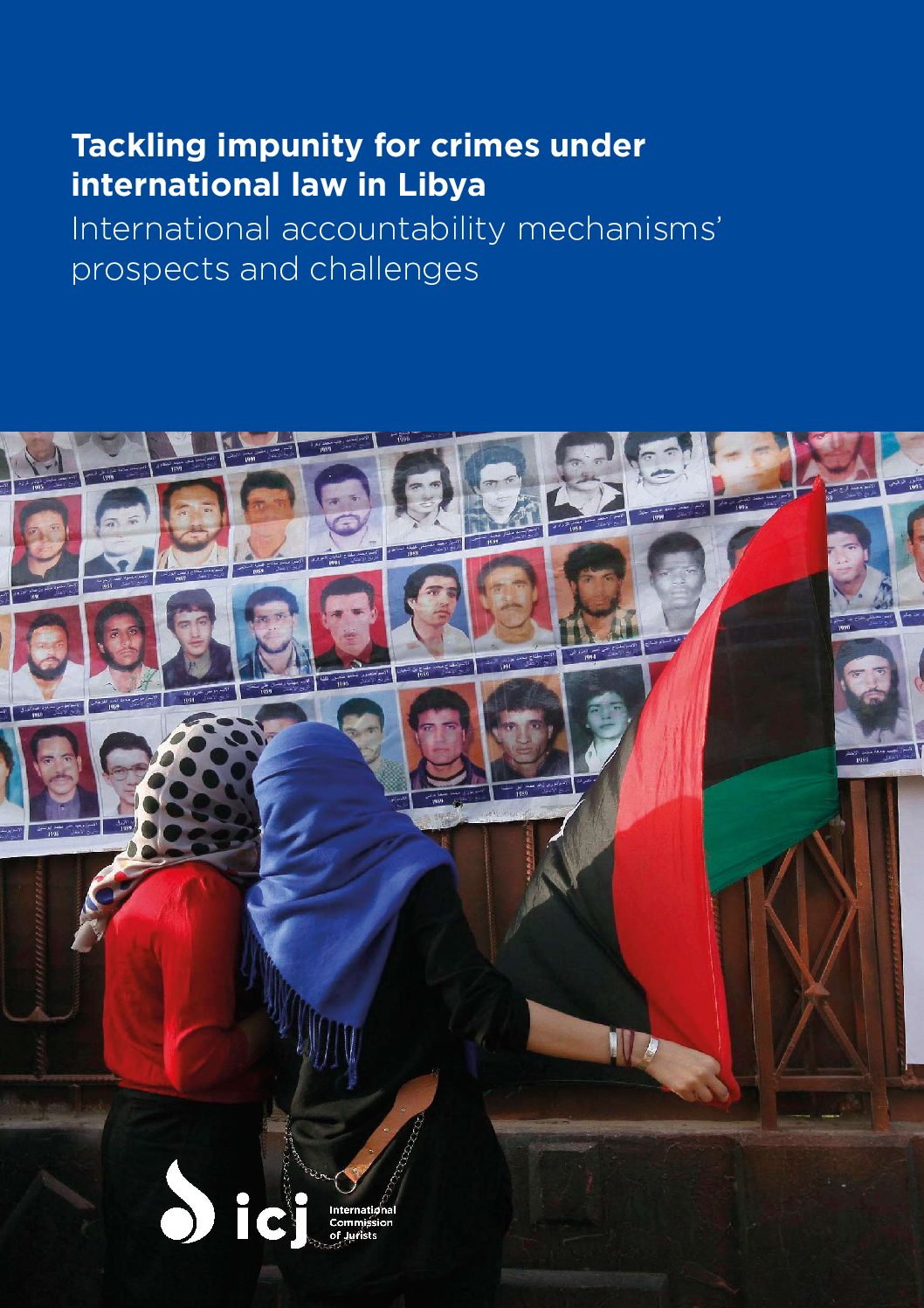The international community should double down on its efforts to address impunity for crimes under international law in Libya by strengthening the capacity and effectiveness of international accountability mechanisms, the International Commission of Jurists (ICJ) said in a briefing paper published today.
In light of the March 2023 expiry of the mandate of the UN Independent Fact-Finding Mission on Libya (FFM), States and civil society organizations should plan ahead on building on the FFM’s work, and on ways of enhancing accountability for crimes under international law committed in the country and redress for victims.
“To ensure enduring peace and stability in the country, Libyans’ demands for justice must be met”, said Said Benarbia, the ICJ MENA Programme Director.
“Addressing decades of impunity for crimes under international law perpetrated in Libya requires supporting the Libyan judiciary’s accountability efforts through enhanced international investigations and prosecutions respecting fair trial guarantees.”
In a briefing paper released today, the ICJ examines the achievements and challenges of the FFM and the International Criminal Court (ICC) in the country, and explores in detail the advantages and disadvantages of establishing new accountability mechanisms, such as an international investigative mechanism and a special tribunal for Libya.
On the basis of such a detailed analysis, the briefing recommends avoiding an ad hoc approach to the creation of international accountability mechanisms and, instead, calls on States to:
- Establish – through a UN Human Rights Council or General Assembly mandate – a Standing Independent Investigative Mechanism (SIIM) or similar mechanism to be triggered when necessary to investigate serious violations and abuses of international human rights and humanitarian law, including in respect of Libya;
- Prioritize support for the ICC investigations in Libya; and
- Promote the initiation of criminal proceedings under universal and other forms of extraterritorial jurisdiction.
A SIIM would primarily conduct investigations with a view to gathering information and evidence for potential use in criminal and other legal proceedings, while also acting as a specialist service provider to existing and future UN-mandated international accountability mechanisms, including relevant fact-finding missions and commissions of inquiry.
A SIIM would also complement ICC proceedings in Libya, as it would collect, consolidate, preserve and share evidence that the ICC Office of the Prosecutor (OTP) could later use in its own investigations.
“Strong, continuous and concrete support to the ICC Libya investigations is a must”, Benarbia said.
“States should provide such support, for example, by increasing unearmarked contributions to the OTP, seconding national experts, fully cooperating with the ongoing investigations and ensuring that any arrest warrants are executed.”
“States should also open up other avenues for accountability and redress for victims through the use of universal and other extra-territorial jurisdiction.”
Download:
This paper can be downloaded in English here and in Arabic here.
Contact
Said Benarbia, Director, ICJ Middle East and North Africa Programme, t: +41-22-979-3817; e: said.benarbia(a)icj.org.

